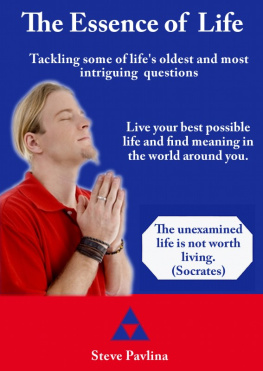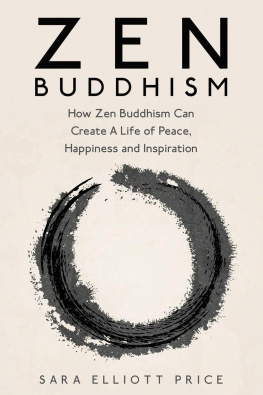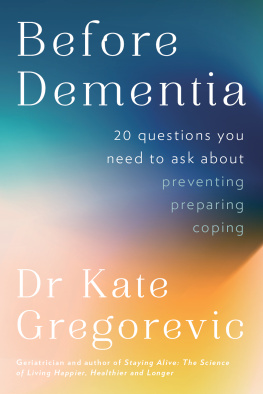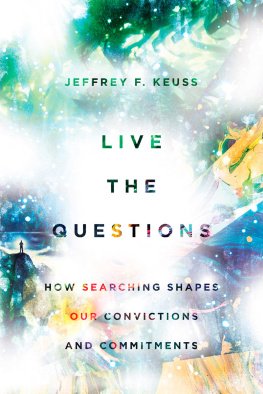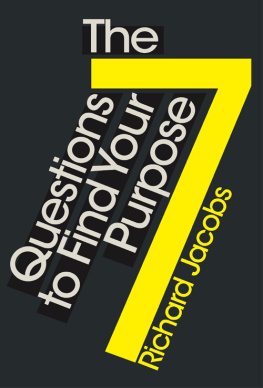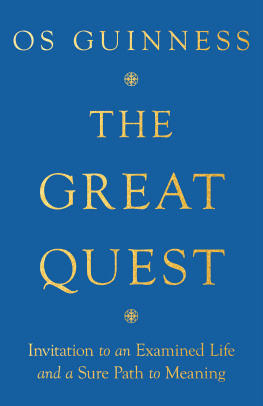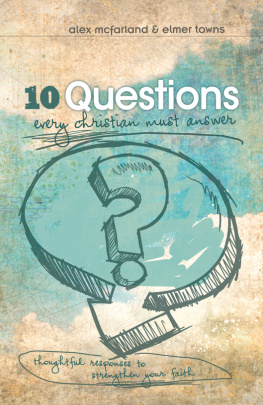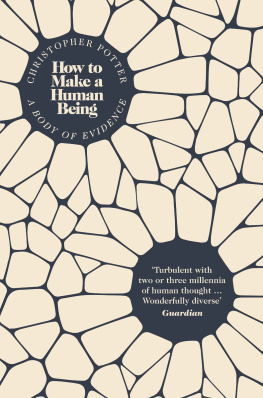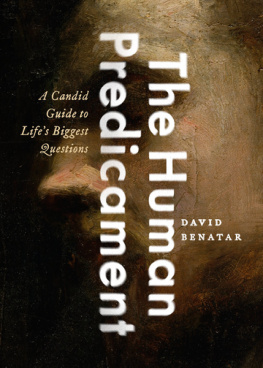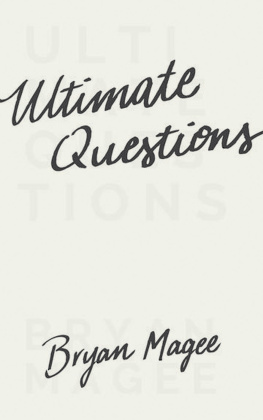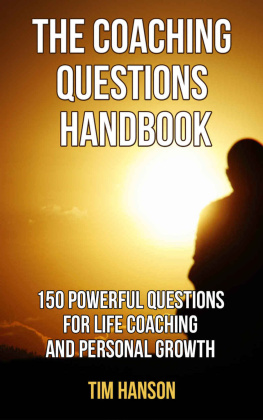The Essence of Life
Tackling some of lifes oldest and most intriguingquestions
Original Work Copyrights 2014 Jeff Mathews
Author Steve Pavlina
Published at Smashwords
Smashwords Edition License Notes
This ebook is licensed for your personal enjoymentonly. This ebook may not be re-sold. If you would like to sharethis book with another person, please purchase an additional copyfor each recipient. If youre reading this book and did notpurchase it, or it was not purchased for your enjoyment only, thenplease return to your favorite retailer and purchase your own copy.Thank you for respecting the hard work of this author.
Table of Contents
So Many Questions
What is the meaning of life? Why are we here?Is there a God or isnt there, and if there is a God, what is itsnature? Of all the worlds religions, which one is the mostcorrect? Is there an afterlife? Are we primarily physical beings orspiritual beings?
People have struggled for millennia to tacklethese questions. Wars have been fought over them. But as much asthese questions cause people to lose their heads (sometimesfiguratively, sometimes literally), the bottom line is that theseare very practical questions.
The way we answer these questions will providethe ultimate context for everything else we do with our lives. Ifwe place any value on our lives at all, we must give someconsideration to these questions.
Lets say you have your life organized aroundgoals, projects, and actions. You set a goal like starting a newInternet business. You break it down into projects like writing abusiness plan and launching your web site. And then you break thoseprojects down into actions like going to the bank to open abusiness account and registering your domain name. Fair enough.
But why start the business in the first place?Whats the point? Why pick this goal vs. any other goal? Why evenset goals at all?
What determines the goals you set (or dont set)is your context. Your context is your collection of beliefs andvalues. So if the values of money and freedom are part of yourcontext, you might be inclined to set a goal to start a newbusiness. But with different kinds of values a different context you may be disinclined to set goals at all.
The most significant part of your context isyour collection of beliefs about the nature of reality, whichincludes your religious, spiritual, and philosophical beliefs. Youroverall beliefs about the universe will largely determine yourresults. Context dictates goals. Goals dictate projects. Projectsdictate actions. Actions dictate results.
Within a certain context, it will be virtuallyimpossible for you to achieve certain results because youll neverset the required goals that will lead to those results.
This is because your context works like afilter. When you are inside a particular context, you lose accessto the potential goals, projects, and actions that lie outside thatcontext. For example, if your context includes the belief thatcriminal behavior is very bad, then you arent likely to worktowards becoming a future leader in organized crime.
Walking in my shoes
This is along personal story, but I think youll find it interesting. I wantyou to notice how my beliefs (my context) shifted over time and howdramatically they changed my results.
For half of my life, Ive been searching for thecontext that would give me the best possible life. Of course, thisis a strange pursuit because it requires searching for a contextwhile at the same time always being stuck inside of one. In otherwords, the definition of best possible life is also part of anycontext, so I have to find a context that both defines that termAND provides a means to fulfill it. This pursuit began almostaccidentally for me, but eventually I began pursuing itconsciously.
For the first half of my life, until the age of17, I was Catholic/Christian, baptized and confirmed. I wentthrough eight years of Catholic grammar school followed by fouryears of Catholic high school. I was a boy scout for several yearsand earned the Ad Altare Dei award. I prayed every day and acceptedall that I was taught as true. I went to Church every Sunday withmy family. All of my friends and family were Christian, so I knewnothing of other belief systems. My father was an altar boy when hewas young, and his brother (my uncle) is a Catholic priest. One ofmy cousins is a member of Campus Crusade for Christ. In high schoolI went to optional religious retreats and did community service,both at a convalescent home and at a preschool for children withdisabilities. I expected to be Catholic for life.
Blasphemous Rumors
But near the end of my junior year of highschool, I went through an experience that Id have to describe asan awakening. It was as if a new part of my brain suddenly switchedon, popping me into a higher state of awareness. Perhaps it wasjust a side effect of the maturation process. I began to openlyquestion the beliefs that had been conditioned into me sincechildhood. Blind acceptance of what I was taught wasnt enough forme anymore. I wanted to go behind the scenes, uproot anyincongruence, and see if these beliefs actually made sense to me. Istarted raising a lot of questions but found few people wouldhonestly discuss them. Most simply dismissed me or becamedefensive. But I was intensely curious, not hostile about it. Myfamily was closed to discussing the whole thing, but I did find afew open-minded teachers. My high school was a Jesuit school, andthe Jesuits are very liberal as far as priests go.
I was disappointed though. What I found was thatregardless of their education and their much greater lifeexperience, very few of my friends and teachers ever bothered toquestion their beliefs openly. And that really gave me a huge shotof doubt. I thought, If everyone is just accepting all of thisblindly and no one is even questioning it, why should I believeit? Over a period of months the doubt only grew stronger, and Itransferred more of my faith from my Catholic upbringing to my ownintelligence and senses. Eventually I just dropped the wholecontext entirely, and in the absence of any other viable contextsto choose from, I became an atheist.
I entered my senior year of Catholic high schoolas a 17-year old atheist. Oh, the irony. Initially I wasnt surewhat to expect, but soon I found the context of atheism to beincredibly empowering. Having shed all my old beliefs, I felt likemy brain had gotten an intelligence upgrade. I could think so muchmore clearly, and my mind seemed to work much better. I also feltmore in control of my life than ever before. Without a belief inGod, I assumed total responsibility for my results in life. Schoolwas easier than ever for me, even though I was taking all theschools most challenging classes, most of them AP courses. I wasso good at calculus that my teacher actually gave me a specialtest, different from the rest of the class. And one time my APphysics teacher came to me before school to have me show him how tosolve a difficult physics problem. I especially found math andscience classes so easy that I began looking for new ways tochallenge myself. So Id try to do my entire homework assignment ona 1 by 1 square of paper, or Id do it in crayon on the back of acereal box cover, or Id color in my polar graphs with coloredpencil and turn it into artwork. People thought I was wacky, but Imainly did these things to keep it interesting because the problemsthemselves posed no challenge. You havent really lived untilyouve done calculus in crayon.
I made no secret of the fact that I was anatheist, so when taking religion classes, Id regurgitate all theraw data needed to ace a test, but whenever there were open-endedessay questions, Id address them from an atheistic perspective.Im grateful the Jesuits were as liberal as they were and toleratedmy behavior. I have to give them a lot of credit for that.
Next page
